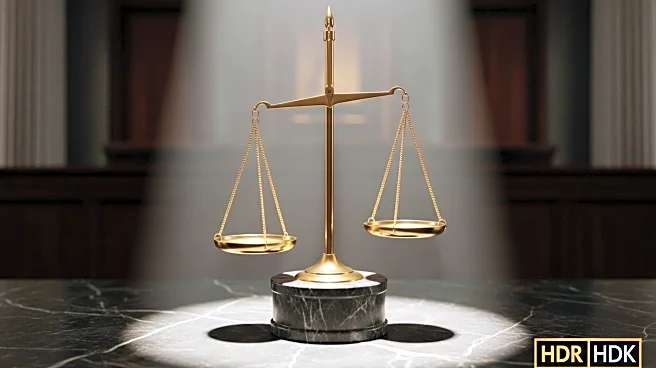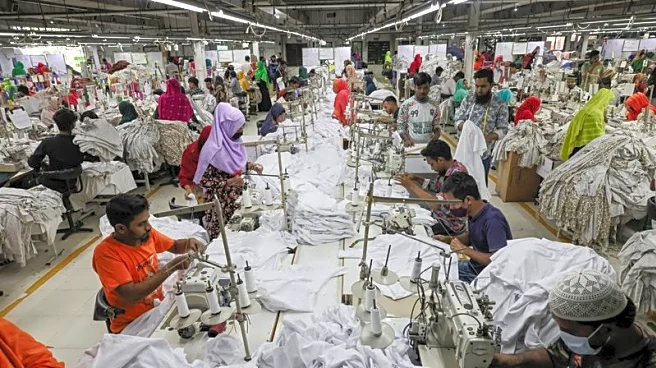What is the story about?
What's Happening?
Nadine Menendez, wife of former Senator Bob Menendez, has been sentenced to four and a half years in prison for her role in a bribery scheme. The sentencing was delivered by U.S. District Judge Sidney H. Stein, who also imposed three years of supervised release. Nadine Menendez was convicted of participating in corrupt activities alongside her husband, involving the exchange of political influence for bribes, including cash, gold bars, and a luxury vehicle. During the court proceedings, Nadine Menendez expressed remorse and attributed her actions to the influence of her husband, whom she described as manipulative. The judge considered her personal circumstances, including health issues and past hardships, in determining the sentence.
Why It's Important?
This case underscores the pervasive issue of political corruption and the exploitation of power for personal gain. The sentencing of Nadine Menendez serves as a cautionary tale about the consequences of engaging in unethical practices within political circles. It highlights the need for vigilance and accountability in public office to maintain the integrity of democratic institutions. The broader implications may include increased scrutiny of political figures and their associates, potentially leading to reforms aimed at preventing similar abuses of power.
What's Next?
Nadine Menendez is set to begin her prison term next summer, following medical procedures. The case may prompt further investigations into political corruption, potentially leading to legislative changes to strengthen anti-corruption measures. Public discourse may focus on the ethical standards expected of public officials and their families, influencing future political campaigns and governance practices.
Beyond the Headlines
The sentencing of Nadine Menendez raises questions about the influence of personal relationships on political decision-making. It highlights the potential for manipulation within intimate partnerships, especially when one partner holds significant political power. This case may lead to discussions about the responsibilities of individuals in positions of influence and the importance of safeguarding against undue pressure from personal connections.


















